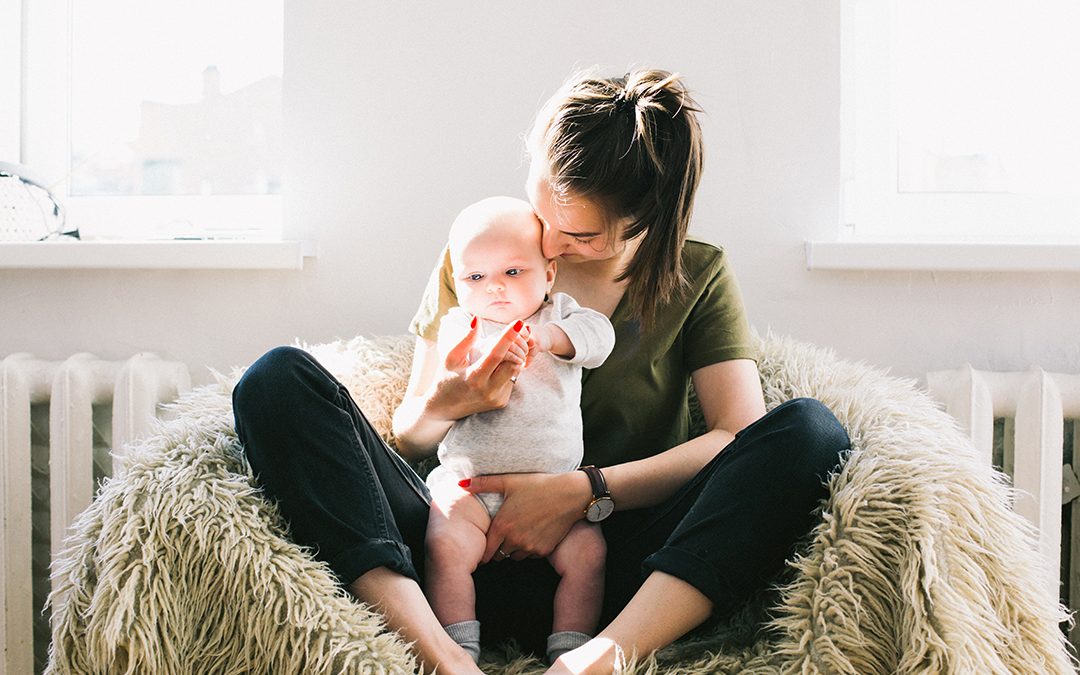Postpartum depression is usually treated using a combination of talk therapy, group support, couple’s therapy, and—sometimes—medication. While there are alternate routes of treatments customized to fit a mother’s particular needs, this combination of treatment usually yields the fastest, most impactful results.
If you are suffering from postpartum depression, your course of treatment will be determined by:
- The severity of your postpartum depression or postpartum anxiety
- How long you have been experiencing symptoms
- Whether any previous forms of treatment failed (or helped)
- History of depression or anxiety
- Personal needs or preferences (such as schedule, relationship status/social support, etc.)
Below are the 3 Main Forms of Treatment for Postpartum Depression
When we discuss postpartum depression treatment with our clients, we like to emphasize that postpartum is very treatable, with 80% of mothers seeing a complete or significant recovery within 12 months (often sooner).
Talk Therapy to Treat Postpartum Depression
Talk therapy has been shown to be very effective in helping to treat postpartum depression in women. In one study, interpersonal psychotherapy reduced the Beck Depression Inventory scores (one method of screening for postpartum depression[i]) of participating women by an average of over 57% after 12 weeks of treatment.[ii]
Medicinal Treatments for Postpartum Depression
Antidepressant treatments have also been shown to be effective in treating postpartum depression. If the mother is breastfeeding, the prescribing medical professional will take this into consideration when recommending the medicine and dosage.
Some mothers are concerned about taking antidepressants while breastfeeding. However, taking medication—especially in partnership with talk therapy—can help yield the fastest recovery for postpartum depression. Some studies show limited or no impact of antidepressants on breastfeeding babies.[iii]
If you’re currently breastfeeding and concerned about taking antidepressants to treat postpartum depression, please talk to your healthcare provider or to contact the postpartum depression professionals at Serenity Recovery & Wellness. We can discuss concerns, current levels of postpartum depression or anxiety, and determine which plan of treatment will be most effective and most comfortable for you.
Group Therapy Treatments for Postpartum Depression
Many mothers suffering from postpartum depression find that group therapy is an effective treatment. In one study, a group of women suffering from postpartum depression attended group therapy that included education and information, stress reduction techniques, development of support systems, and cognitive restructuring—or developing emotional regulation and coping skills. The women in the study stated that this therapy was of great help to them.[iv]
One of the biggest barriers to being able to attend group therapy is childcare responsibilities. At Serenity Recovery & Wellness, we request our mothers bring their infant with them to the sessions. Not only does this help to simplify childcare for most mothers, but it also helps the mothers interact with their infants in important bonding and skills-building exercises.
What Postpartum Depression Treatment Looks like at Serenity Recovery & Wellness
At Serenity Recovery & Wellness, we combine the above postpartum treatment methods for intensive care and recovery. We find that this combination can help mothers begin feeling “back to themselves” in as soon as 2-4 weeks and can help speed overall recovery and feelings and normality.
Our intensive postpartum depression recovery program meets 3 times per week for 3 hours a day. This may seem like a lot, but we find that an intensive program can help shorten recovery time and can help most mothers feel “back to normal” more quickly.
Mothers are encouraged to bring their infants to these sessions, as treatment includes bonding and skills-building exercises.
This postpartum depression treatment and support program utilizes:
- Group education sessions
- One-on-one psychotherapy sessions
- Parenting partner sessions
- Group support building
Our postpartum treatment plan uses evidence-based treatment that equips mothers with the skills that can help improve their recovery, improve their relationship with their child and partner, manage symptoms at home, and feel “back to normal.”
For more information about our postpartum depression programs, please contact us.


